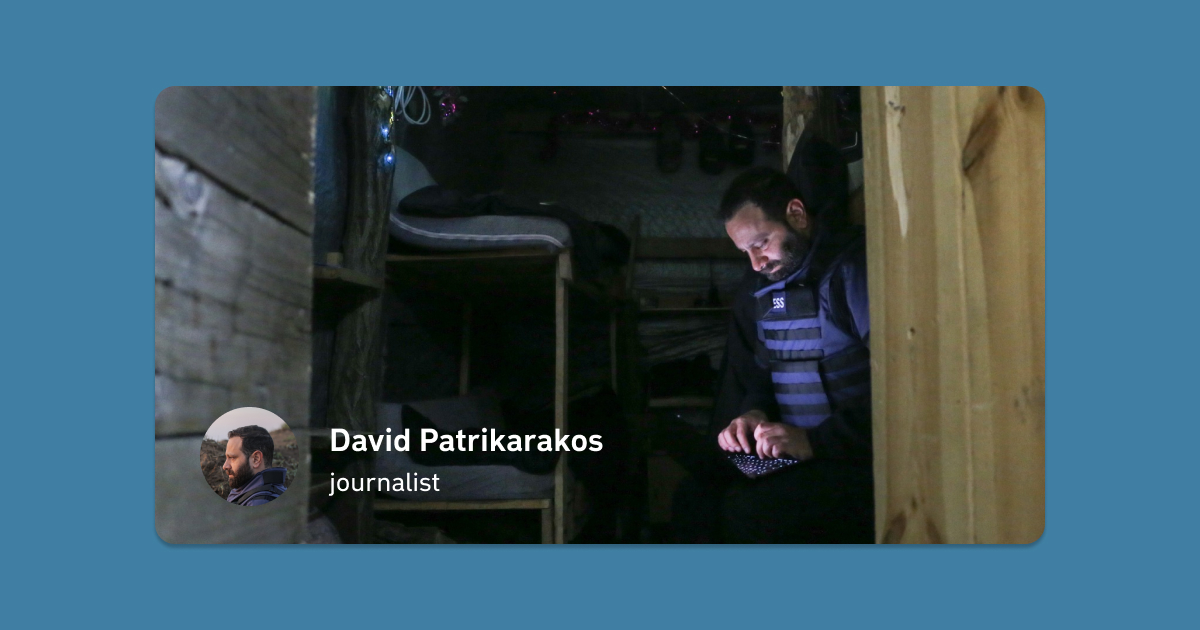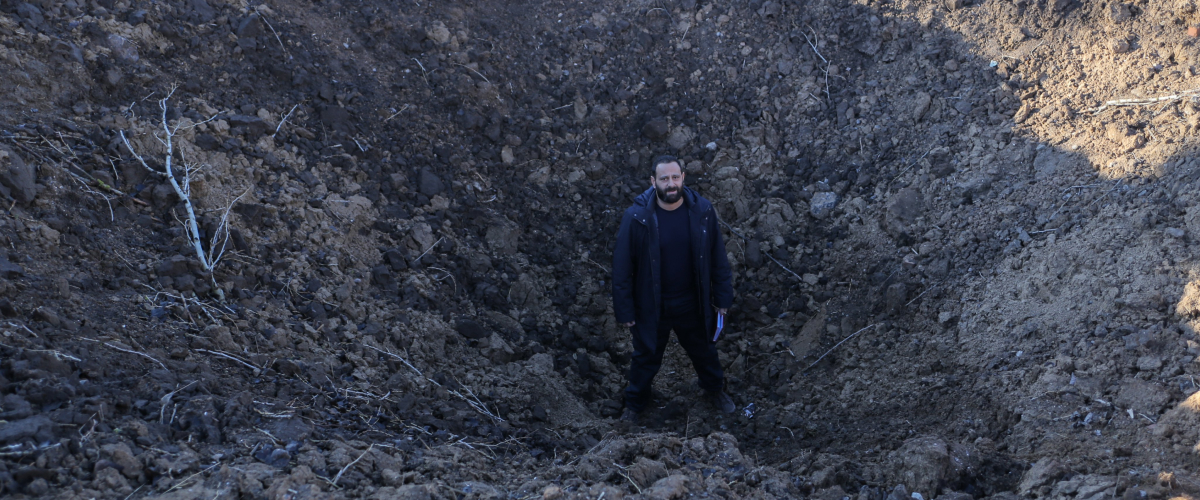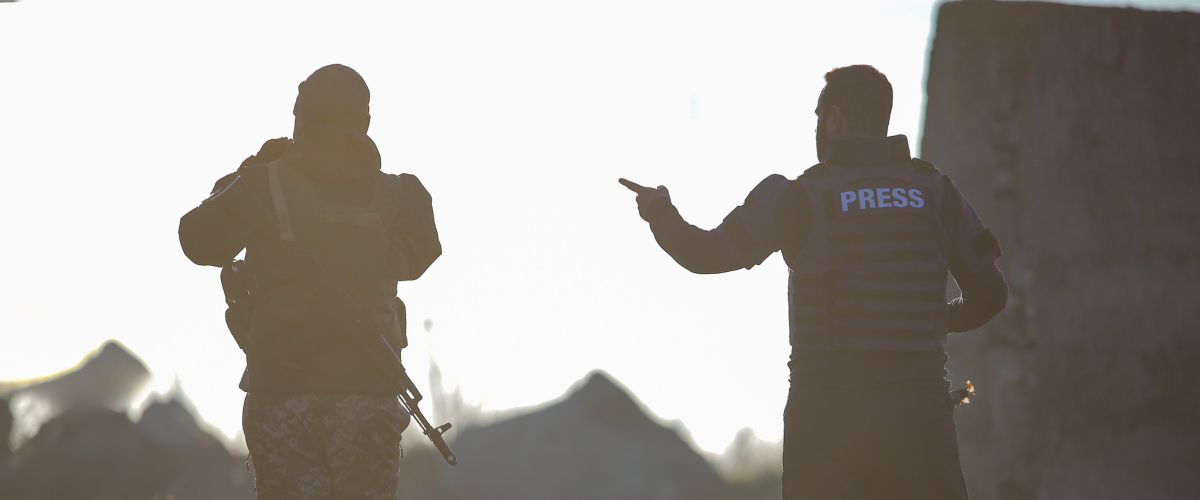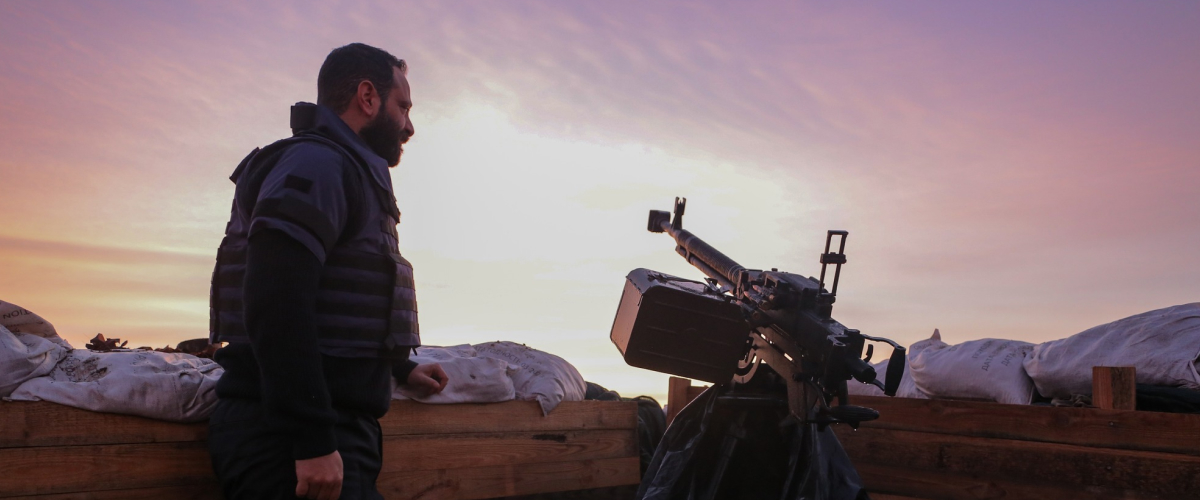How are social networks changing war?

Kepios' analysis shows that in January 2023, there were almost five billion social media users worldwide, nearly 60% of the world's population. As a result, social media can influence people's thoughts, feelings, and moods. And according to journalist David Patrikarakos, it can also affect wars in the modern world.
David Patrikarakos is a British journalist who has written for The New York Times, Financial Times, Wall Street Journal, Newsweek, The Guardian, Daily Telegraph, The Spectator, and Foreign Policy. He specialises in Iran, the Middle East, post-Soviet countries, and disinformation.
Patrikarakos is the author of the books on Iran's nuclear program Nuclear Iran: Birth of an Atomic State and War in 140 Characters: How Social Media Is Reshaping Conflict in the Twenty-First Century. Currently, the journalist is covering the Russian-Ukrainian war, which he started writing about in 2014.
Svidomi talked to the journalist about the role of social media in the Russian-Ukrainian war and how it has changed the nature of wars.
War in 140 characters
The journalist believes that social media have helped to destroy the traditional hierarchy of information and media and thus led to the emergence of a new type of "super-enhanced individuals" - Homo digitalis. These are people able to mobilise others texting messages.
In Ukraine, examples of such influence include Mustafa Nayyem's post calling for people to come to the Maidan on November 21, 2013, and how Ukrainian volunteers are raising support for the army.
"Online groups sprung up all over Ukraine, doing everything from spreading the word and resettling people to raising money to repair aeroplanes and buy trucks to mount rocket launchers on. They all used social media to bypass government bureaucracy. Reinforced by social media, they have essentially become a virtual state," the journalist writes about the phenomenon of Ukrainian volunteerism.

States can lose a war even after winning a physical battle
In his book War in 140 Characters, David Patrikarakos writes that social media has given a new twist to military conflicts — states can lose a war even if they win a physical battle. After all, there is also a battle of narratives during a war.
Patrikarakos believes that information disseminated outside the front lines can influence the course of hostilities.
"The war is won or lost on the battlefield, but there are factors that have a greater or lesser degree of influence, depending on the goals being pursued," says Patrikarakos.
Referring to the example of 2014, after Russia occupied Crimea and launched military operations in eastern Ukraine, the goal was not to defeat Kyiv but to force Ukraine to the negotiating table.
"The goal was essentially to destabilise the state so that it could no longer function effectively. So it's not really a military goal, is it? It's a political one. Plus, to spread unfiltered narratives that Ukraine is a fascist hunter and kills Russian speakers. So in this sense, the information has become important," the journalist notes.
In the context of a full-scale Russian invasion, the information does not directly affect the battlefield but helps Ukraine receive military assistance.
"Volodymyr Zelenskyy became a wartime leader because of the messages in his video addresses. He was able to get his point across, which was important for the support of the West," says David Patrikarakos.

Wars are waged with information support
David Patrikarakos believes that the nature of war has changed somewhat since the Second World War, but something remains the same. When a journalist visits the battlefield, he doesn't see World War II-era weapons, but he does see Soviet models.
"In war, certain things change but work the same way. That is, armies fight armies, but the technologies are different. Nuclear weapons have appeared. The tactics and flanking remain the same, but the context of the war is also changing," he says.
The most significant shift that has led to wars being waged with information support is the emergence of smartphones. Thanks to this, you can see everything happening in the war.
It has become harder to hide crimes today, but this does not mean they have stopped being committed.
"You would think that if you see all the atrocities that are happening, people will put an end to them, but they don't," says Patrikarakos.

The influence of social networks and media on the Russian-Ukrainian war
The British journalist believes that Ukrainians effectively use social media to promote the narrative that they are a peaceful nation under attack.
"Zelenskyy's video address, where he stands on the street with a camera on his phone (a video from February 26, 2022, which Zelenskyy filmed in front of The House with Chimaeras to deny fakes about his evacuation - ed.). You see that Zelenskyy is two things simultaneously: the president and a little man on the street. Ukrainians have effectively used this video to personalise the war," says David Patrikarakos.
Social media has been essential in gaining support for Ukraine. Soft power has proven vital to gaining hard power.
"It's always important to fight on the battlefield, that is, physically. That's where everything is mostly won and lost. But what happens around you is also important. If you had the same war and atrocities that the Russians are committing, but the information campaign were ineffective, you would not have received the number of weapons you have now," says Patrikarakos.


